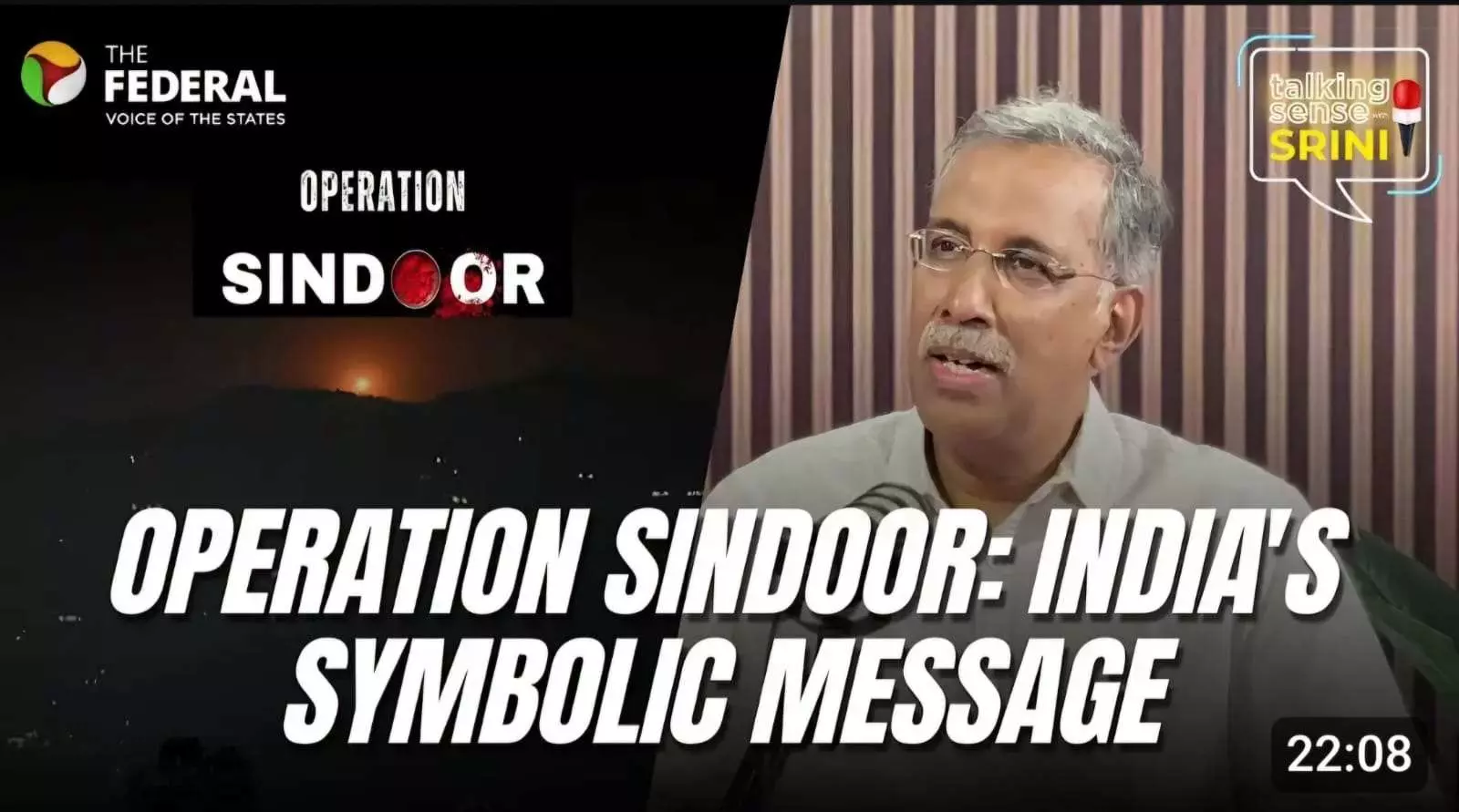
India, Pakistan on brink of war after Operation Sindoor? | Talking Sense With Srini
Srinivasan sees it as part of a broader shift in India’s counterterrorism doctrine—one that blends military precision, strategic communication, and political signalling

India has launched precision missile strikes deep inside Pakistan and Pakistan-occupied Kashmir (PoK) in retaliation for the Pahalgam terror attack, which left 26 civilians dead, mostly tourists. The operation, dubbed Operation Sindoor, marks a significant escalation in New Delhi’s response to cross-border terrorism, targeting terror infrastructure far beyond the Line of Control (LoC).
The strikes hit nine sites linked to militant training operations, including locations in Bahawalpur and Muridke in Pakistan’s Punjab province. In a marked departure from past operations such as the 2019 Balakot airstrikes, these attacks employed guided missile systems to inflict “surgical precision and minimal collateral damage,” said S Srinivasan, Editor-in-Chief of The Federal on Talking Sense With Srini.
Also read: 'No regret, despair': JeM chief Masood Azhar after kin killed in Operation Sindoor
India’s symbolic messaging
“This wasn’t an air or ground assault. It was a missile strike with surgical precision,” Srinivasan noted, underscoring the scope and depth of the strikes. According to Indian officials, the sites struck had longstanding links to terror activities, right from the 26/11 attack in Mumbai to the recent violence in Jammu and Kashmir.
In an unusually detailed press briefing, the Indian government released aerial visuals of the operation and explicitly tied the targeted camps to prior terror incidents. The briefing also stood out for its symbolic messaging—women officers led parts of the presentation, and the name of the operation, ‘Sindoor’, carried cultural significance.
“In Bollywood and popular culture of the 70s and 80s, sindoor was associated with honour, sacrifice, and vengeance for a slain husband or violated home,” Srinivasan said, referencing films such as Sindoor Ki Kasam.
Counterterrorism doctrine
The strikes come amid heightened global geopolitical tensions, with major powers urging restraint. The United States, China, and Russia have all called for de-escalation, wary of another flashpoint in an already unstable international landscape shaped by conflicts in Ukraine and the Middle East.
Domestically, the operation underscores Prime Minister Narendra Modi’s continued emphasis on national security as both a diplomatic instrument and a political message. Srinivasan sees it as part of a broader shift in India’s counterterrorism doctrine—one that blends military precision, strategic communication, and political signalling.
Also read: Operation Sindoor still on, says Rajnath Singh at all-party meet
All eyes on Pak’s next move
With Pakistan facing deep economic distress, few expect Islamabad to risk a prolonged escalation. Yet the real uncertainty, Srinivasan warned, lies in how Pakistan’s military-intelligence complex chooses to respond—“whether through direct action or continued proxy warfare via terror outfits.”
“War is always costly,” he added. “But diplomacy backed by decisive action might be India’s most powerful weapon yet.”
The content above has been generated using a fine-tuned AI model. To ensure accuracy, quality, and editorial integrity, we employ a Human-In-The-Loop (HITL) process. While AI assists in creating the initial draft, our experienced editorial team carefully reviews, edits, and refines the content before publication. At The Federal, we combine the efficiency of AI with the expertise of human editors to deliver reliable and insightful journalism.

